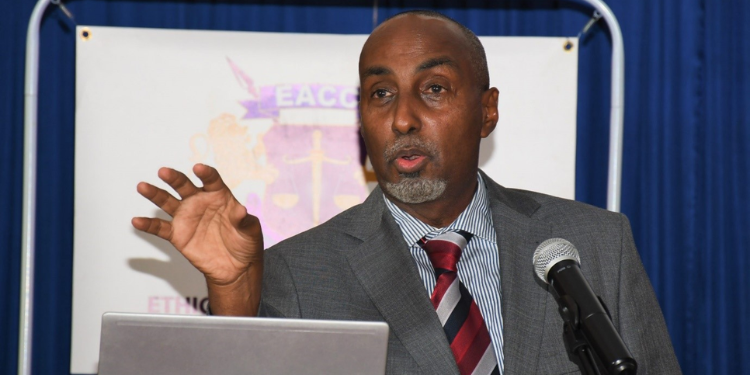It’s been stated that the devil operates in idle minds. This passage from the book of Proverbs serves as an excellent example of the need to keep one’s mind active at all times to prevent it from drifting into uncertainty. The majority of social evils are the product of idle minds seeking attention, survival, and sometimes even pleasure. The surge in unemployment rates in Kenya portends both an economic and a social worry, which is not in doubt.
According to the Federation of Kenya Employers (FKE), the overall unemployment in Kenya is 12.7%, with youth aged 15 – 34 years, who form 35 percent of the Kenyan population, having the highest unemployment rate of 67 percent.
The COVID-19 pandemic, by a large margin, left a significant dent in the economy and many other sectors of society, besides massive job losses. Businesses that were thriving before the pandemic struck were destabilized, leading to layoffs to remain afloat, thereby reducing job prospects.
The slump in the economic outlook has created a bleak future, especially for the young job seekers who have just left school with ambition, optimism, and a sheer admiration for independence.
Youth unemployment is a significant global problem that has heavily impacted people’s mental health in quite unimaginable ways. As people navigate the schooling and training system, hopes, expectations, and optimism envelop their thoughts as they envision themselves working, earning, and achieving self-sufficiency.
Transiting from school to the workplace sometimes is not easy, and for many who fail to secure employment, this becomes mindboggling, as feelings of guilt, frustration, anxiety, and diminished self-esteem.
The global financial shocks, a lack of employment prospects, and the absence of job-specific skills have affected mental health, feeding into the vicious cycle of stress and hopelessness.
Unemployment and the Economy
Apart from the pandemic, structural economic problems also play a significant role in creating unfavorable conditions for persistent joblessness.
The competition for available job opportunities has intensified due to the rapid population increase and a reduced workforce from formal employers.
Also Read: Ruto Admits Government Can’t Immediately Solve Unemployment Crisis
Employers’ need for work experience and relevant work-related skills prevents many young people from entering the workforce, and this is further exacerbated by limited access to professional development and vocational training opportunities.
Economic and structural hurdles worsen youth unemployment in many places, including Kenya. The demands of most potential organizations often do not align with the talents of job seekers, making it difficult for them to break into the workforce.
This job instability is also exacerbated by the prevalence of informal work and the lack of job development in many industries. The ensuing economic instability and frozen employment opportunities may cause young people to experience elevated stress levels, despondency, and a feeling of hopelessness.
The push by the family and friends, as well as social pressures and the high aspirations youth have of being financially independent, exacerbate this mental strain.
Joblessness and mental health
The link between unemployment and mental health is troubling due to the fact that joblessness can negatively affect one’s entire sense of well-being and life satisfaction.
Long-term unemployment can have an impact on one’s identity and social interactions by causing feelings of loneliness and purposelessness.
It is always difficult for young people without jobs to look for new opportunities or pursue higher education and training prospects, since they may feel less motivated and have lower self-esteem
The massive layoffs are worrying, and this only adds to the already flooded flood of job seekers. The majority of Kenyans, mainly the youths as well as the older unemployed ones, find themselves in the rut of hopelessness and despair, especially in situations where there are dependents involved.
Consequently, the reduced self-esteem, feelings of being devalued, and a bruised ego for failing to meet their responsibilities eventually lead to mental health issues.
A number of social ills are associated with youth unemployment, such as elevated rates of crime, prostitution, and other social evils. In the absence of steady work, the proclivity to turn to illicit or venture into deceptive endeavors is exponentially high just to pull by any means necessary.
Some may even resort to prostitution or other illegal activities where they may look for quick cash despite the risks and repercussions involved, such as drug trafficking.
These pursuits not only raise the crime rate but also keep young people trapped in cycles of poverty, fragility, and insecurity.
Despair and anxiety
Not to mention, the stress of being unemployed can have detrimental effects on mental health, increasing rates of anxiety, despair, and even suicidal thoughts.
Long-term joblessness brings with it feelings of unpredictability and dissatisfaction that can damage one’s self-esteem and make one feel dejected.
Youth without jobs who experience mental health difficulties may experience more severe symptoms due to the lack of sufficient support networks, which could raise their risk of suicide.
Developing avenues for employment and simultaneously offering essential psychological assistance to lessen the negative impacts of joblessness are two holistic strategies that are needed to address these interconnected concerns.
Supportive psychological measures need to be put in place to lessen the depressive and sometimes suicidal feelings and effects due to unemployment.
Also Read: Why Unemployment Among Kenyan Graduates is Rising and What Needs to be Done
By participating in programs that provide professional supervision, apprenticeships, and mental health support, young people can develop strategies to address employment challenges and gain flexibility.
Diverse paths to steady work can also be provided by initiatives that foster creativity and independent thinking. By combining mental health care with job training, it is possible to create a more comprehensive plan that addresses the different problems that young people face.
A coordinated effort from government, educational institutions, and community organizations to address general unemployment and its effects on mental health is inevitable.
Policies that support career development, improve training possibilities, and provide mental health resources are essential for supporting young people as they transition into the workforce.
Ultimately, the psychological wellness of the youths can be enhanced and further assisted in achieving a more stable and rewarding future by creating a supportive atmosphere and attending to both employment and mental health issues.
This article was written by Protus Murunga, a PhD student at the Royal Melbourne Institute of Technology (RMIT) University, Australia.
Follow our WhatsApp Channel and X Account for real-time news updates.





















































![Senator Allan Chesang And Chanelle Kittony Wed In A Colourful Ceremony [Photos] Trans Nzoia Senator Allan Chesang With Channelle Kittony/Oscar Sudi]( https://thekenyatimescdn-ese7d3e7ghdnbfa9.z01.azurefd.net/prodimages/uploads/2025/11/Trans-Nzoia-Senator-Allan-Chesang-with-Channelle-KittonyOscar-Sudi-360x180.png)



















